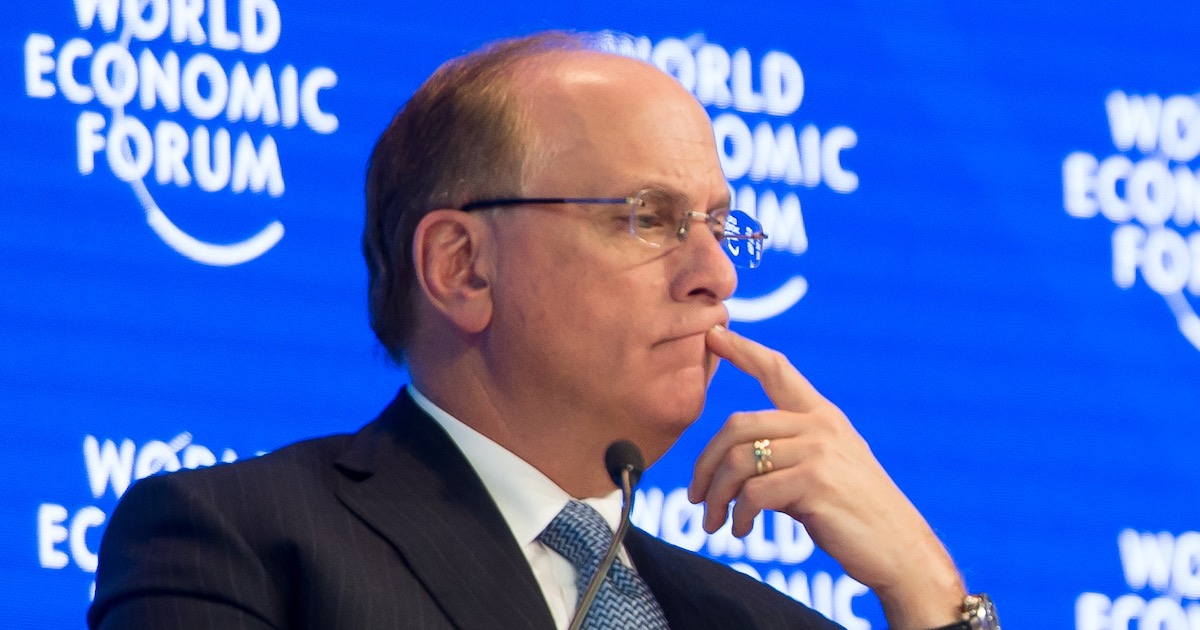
09 Jan 2024 Scott Shepard: Is BlackRock’s Retrenchment From ESG Real?
Don’t celebrate BlackRock’s move toward apparent political neutrality quite yet.
Despite reports that the investment behemoth is dissolving its ESG-labeled funds and laying off 600 employees in its ESG and sustainability departments, Free Enterprise Project Director Scott Shepard notes in a RealClearMarkets commentary that a little digging suggests perhaps “an active and willful attempt to keep deceiving, but more stealthily.”
Read Scott’s entire column below.
Reports this week are that BlackRock will be laying off 600 employees in its ESG and sustainability departments as part of its at-least-nominal retrenchment away from kneejerk support for an agenda that was sold as non-partisan “doing well [in the funds] by doing good [for the world],” but in practice meant forcing American corporations to adopt policies that mirrored fairly comprehensively the Biden Administration’s “whole of government” initiatives and Barack Obama’s desktop to-do list.
Those layoffs are one piece of evidence in favor of thinking that the nominal pullback is real. (It’s also, twinned with DEI-department cuts throughout industry, a warning to zillenials that majoring in Leftwing Grievance studies may not be as remunerative now as it was for their big siblings.)
Other indicators muddy the waters. According to Fox Business, at BlackRock “U.S. portfolio managers are no longer required to consider ESG metrics when not using ESG funds,” in part because “[i]n 2023, many so-called green investment funds have seen declines in assets amid weak performance as investments in sustainable energy products fail to produce significant returns.”
That sounds good, but what’s remarkable about it is not the moving-away-from ESG part. What it reveals is that heretofore BlackRock had required U.S. portfolio managers to consider ESG metrics when not running non-ESG fund. That’s pretty astounding. If BlackRock offers both ESG funds and non-ESG funds, the obvious implication is that for the non-ESG funds ESG considerations are excluded – certainly not that they are mandatory.
This is a potentially massive legal liability for BlackRock. CEO Larry Fink stands afront the chorus of partisans claiming that, for example, “carbon risk is material risk” to justify forcing companies to make disclosures designed to force decarbonization according to leftwing-political schedules. (Somehow, he didn’t think that the costs of such decarbonization and the risks associated with handing company planning over to activists and U.N. types slavering after additional power were material, though.) Having made that claim, Fink and BlackRock are stuck with it. If carbon-related and other ESG-driven decisions are material, then running non-ESG funds according to ESG principles must be a material decision, right? It follows that billing some funds as ESG funds and others as non-ESG funds but running them all according to ESG principles would qualify as material misinformation, a failure to make a material disclosure – a serious offense for an investment house.
And note that even now it appears that BlackRock is still allowing U.S. portfolio managers to consider ESG metrics when running non-ESG funds. It looks like the material disclosure failure is continuing – with the added problem that it’s not clear how that permission to use ESG criteria is cabined. Is it up to each manager, so that investors at BlackRock just have to hope that they get one of the managers who’s committed to achieving maximum returns rather than one who lets his politics influence his decision-making? I would think that disclosing which fund has which sort of manager would be a very material disclosure indeed, one that BlackRock should be making every time.
All of this puts in a rather different light the late-summer development that BlackRock had dissolved its ESG-labeled funds. That was hailed by many proponents of business neutrality as a move by BlackRock away from partisan investing. With this new information the possibility arises that it instead was an act of enhanced dissimulation – taking the ESG labels off so that the application of ESG principles to non-ESG funds was no longer so obviously an act of deception against non-ESG fund investors. But that itself would constitute an active and willful attempt to keep deceiving, but more stealthily.
Then add as context Fink’s interview a month or so before the dissolution of the ESGs during which said he was no longer going to use the term ESG, preferring “conscientious capitalism” – but then revealed that by conscientious capitalism he just meant the same old ESG policies and behaviors. But changing the label of a thing for the purpose of continuing to do that thing without people knowing is fundamentally deception. Such deception is fine if the people being “deceived” have no right to know what you’re doing. If it’s undertaken by an investment house to allow that house to continue with investment-related policies and behaviors that have grown objectionable but to hide that from its clients, it is not fine at all – though it could lead to very large fines indeed.
BlackRock may well be genuine in all of these changes, and really be getting out of politicization and returning to objectively neutral investment strategies unless openly and clearly disclosed. But it’s definitely not there yet. And because of its history of troubling behavior and the years of preposterous assertions by Fink and others that manifestly partisan investment criteria and “behavior forcing” were wholly objective and neutral, the burden lies with BlackRock to prove that it has mended its way, rather than just muddying the waters.
And in BlackRock’s partial defense, it’s clear that its Big 3 partners, State Street and Vanguard, are worse.
Scott Shepard is a fellow at the National Center for Public Policy Research and Director of its Free Enterprise Project. This was first published at RealClearMarkets.




